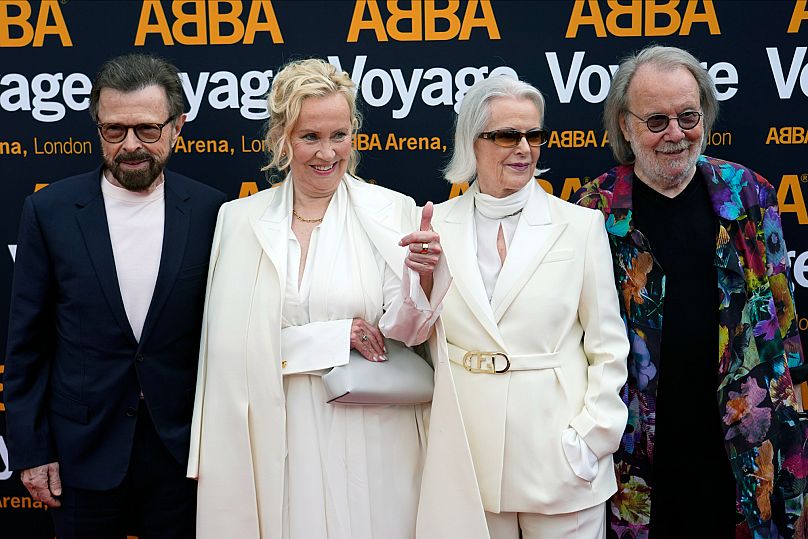ABBA’s Björn Ulvaeus was at the inaugural edition of London’s SXSW festival yesterday and revealed he is writing a new musical using AI.
He referred to artificial intelligence as “such a great tool” and discussed his project during a talk at SXSW London.
“It is like having another songwriter in the room with a huge reference frame,” he said. “It is really an extension of your mind. You have access to things that you didn’t think of before.”
Ulvaeus discussed the technology’s limitations, saying that it is “very bad at lyrics” and that he believed AI’s most useful application was to help artists overcome writer’s block.
“You can prompt a lyric you have written about something, and you’re stuck maybe, and you want this song to be in a certain style,” he explained. “You can ask it, how would you extend? Where would you go from here? It usually comes out with garbage, but sometimes there is something in it that gives you another idea.”
Ulvaeus previously warned of the “existential challenge” AI represents to the music industry. He is the president of the International Confederation of Societies of Authors and Composers (CISAC), a non-profit organisation that represents songwriters and composers around the world, collecting and paying royalties to its members whose music has been used in broadcasts and on streaming services.
The organisation has produced reports on AI use in music. Most recently, one of their studies suggested that music creators could lose nearly a quarter of their income to AI by 2028.
Regarding this report, Ulvaeus stated that governments have the power to step in and give a helping hand to creatives.
“For creators of all kinds, from songwriters to film directors, screenwriters to film composers, AI has the power to unlock new and exciting opportunities — but we have to accept that, if badly regulated, generative AI also has the power to cause great damage to human creators, to their careers and livelihoods.”
“Which of these two scenarios will be the outcome?” Ulvaeus continued. “This will be determined in large part by the choices made by policy makers, in legislative reviews that are going on across the world right now. It’s critical that we get these regulations right, protect creators’ rights and help develop an AI environment that safeguards human creativity and culture.”
During the SXSW discussion in London, Ulvaeus also noted that he was “three quarters” of the way through writing the follow-up to the Swedish legends’ hologram-based ABBA Voyage concert series.
ABBA has just celebrated the third anniversary of their acclaimed virtual concert experience ‘Voyage’ by introducing new songs to the setlist.
ABBA Voyage first kicked off in May 2022, and was due to wrap in November 2024, but has since been extended to January 2026 due to overwhelming demand.
Elswehere, SXSW London has faced intense criticism after former UK prime ministers Tony Blair and David Cameron were among the unannounced speakers.
Screenshots were leaked of the un-shared programme that included Blair talking on a panel called Government and AI, which also featured Technology Secretary and Labour Friends of Israel member Peter Kyle.
Blair spoke at the conference’s opening day, saying that Britain needs to fully embrace artificial intelligence in public services and that we “could have AI tutors” along with “AI nurses, AI doctors”.
The panel appearance, which was not announced to the public or artists, prompted many artists to cancel their planned performances at the festival.
Sam Akpro, Rat Party, Magnus Westwell, Saliah and LVRA were amongst the artists who pulled out, with the latter accusing the festival of “artwashing”, saying that “whilst the music team were pulling together a diverse, ‘cool’ lineup, the conference team were booking speakers from multiple organisations deeply complicit in the current genocide of Palestinian people.”
“I implore artists to engage, rather than ignore, those things that affect us and strive to protect the most marginalised voices in the world,” LVRA added. “I urge us as a community to think bigger, and better, than the scraps offered to us today.





